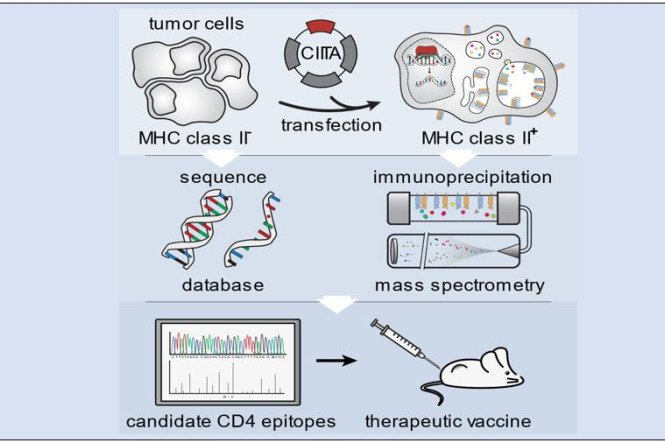(Use this link to open the article in Cell Reports).
The exciting idea has been to exploit the transcriptional activator molecule CIITA (Class II transactivator) to induce expression of the MHC class II antigen presenting machinery in cancer cells. In this way, one can directly isolate en identify the cancer-associated antigens from the MHC class II molecules by biochemistry and mass spectrometry. With this method, many novel oncoviral, shared and neo- helper antigens were identified in both mouse and human cancer cells.
Follow up work as reported in this paper showed that the antigens when formulated in a vaccine could induce tumor-specific T helper responses that inhibited tumor outgrowth in mice. These findings are important for cancer immunotherapy by therapeutic vaccination or other approaches that engage T helper cells.
This study nicely illustrates a very successful multidisciplinary research collaboration, says Ossendorp. Not only MHC expression regulation by CIITA, studied by Peter van den Elsen in our department, was instrumental, but also collaborations with Noel de Miranda (Pathology) for exome sequencing and Peter van Veelen (CPM) for high resolution mass spectrometry were crucial for this study.
